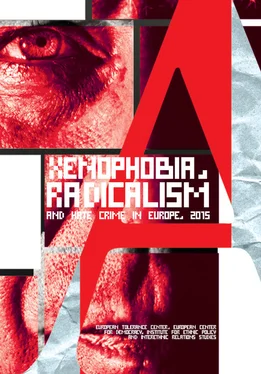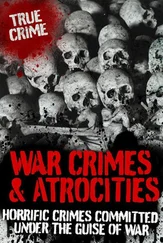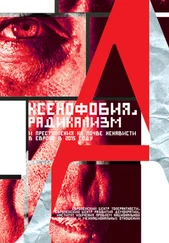In Greece, a proposed amendment to the Criminal Code (Article 361B) introduced criminal responsibility for refusing goods and services on the basis of race, colour, national or ethnic origins, religion, disability, sexual orientation, and gender identity. The article came into force in July 2016 [30] http://rvrn.org/wp-content/uploads/2016/04/Report_2015eng.pdf
, and is predominantly aimed against the neo-Nazi Golden Dawn party, which regularly organised giveaways to “pure” Greeks during Orthodox holidays. [31] https://greekhelsinki.wordpress.com/2016/07/09/%CF%85%CF%80%CE%BF%CF%85%CF%81%CE%B3%CE%B5%CE%AF%CE%BF-%CE%B4%CE%B9%CE%BA%CE%B1%CE%B9%CE%BF%CF%83%CF%8D%CE%BD%CE%B7%CF%82-%CE%B4%CE%B5%CE%BD-%CE%B1%CF%80%CE%BF%CF%80%CE%BF%CE%B9%CE%BD%CE%B9%CE%BA/
The decade-long debates surrounding the construction of a cathedral mosque and a mosque at a Muslim cemetery in Athens continued in the Greek parliament throughout 2015. The issue was first raised in 2006 and finally approved by parliament on August 3, 2016. [32] http://www.dailysabah.com/diplomacy/2016/06/25/greek-approval-of-mosque-construction-in-athens-may-better-relations-with-turkey
Advocates for the mosque argue that the project has more social than religious connotations, as it is aimed to improve the position of minorities in Greece. Education and Religious Affairs Minister Nikos Filis argued that Greece should avoid mistakes made by other European policymakers that left many migrant communities socially isolated and vulnerable to the threat of extremism. «It is truly the elephant in room: Europe has not accepted that Islam is a reality,» he told parliament. “The existence of makeshift mosques (in Athens) is a disgrace for our country.” [33] http://www.dailysabah.com/europe/2016/08/04/greek-parliament-approves-mosque-construction-in-capital-athens
France has taken significant steps in combating xenophobia and hate crime in 2015, introducing the New National Plan of Action to Counter Racism and Anti-Semitism for the period until 2017. [34] La République mobilisée contre le racisme et l’antisémitisme – Plan d’action 2015–2017. Dossier de presse, http://www.gouvernement.fr/sites/default/files/liseuse/4040/master/projet/La%2DR%C3%A9publique%2Dmobilis%C3%A9e%2Dcontre%2Dle%2Dracisme%2Det%2Dl%2Dantis%C3%A9mitisme%2D%2D%2DPlan%2Dd%2Daction%2D2015%2D2017.pdf
The plan was published on April 17, 2015 and contains the following elements: organisation of a public awareness campaign in support of national minorities; physical protection of Jewish and Islamic schools, places of worship, etc.; establishment of a national department to combat hate speech online, and others. However, more importantly, the plan proposes a prompt modification of the French criminal law to introduce racism and anti-Semitism as aggravating circumstances in all violations. On October 8, 2015, President Hollande instructed the Justice Minister to prepare a formal proposal of this bill by the end of the year. [35] Rof, Gilles, „François Hollande veut davantage punir le racisme”, LeMonde.fr, 8 October 2015, http://www.lemonde.fr/politique/article/2015/10/08/hollande-veut-davantage-punir-le-racisme_4785604_823448.html
The bill is currently being reviewed by parliament. There is also a possibility that sexism will be included, alongside racism as an aggravating circumstance in the commission of a crime. [36] See here: Le sexisme, bientôt circonstance aggravante des crimes et délits, Libération.fr, 17 June 2016, http://www.liberation.fr/direct/element/le-sexisme-bientot-circonstance-aggravante-des-crimes-et-delits_40164/
On November 23, Russian President Vladimir Putin signed a law that prohibited recognising the main Christian, Muslim, Jewish, and Buddhist texts as extremist. The law will apply to the Bible, Koran, Tanakh, and Kangyur. [37] http://kremlin.ru/acts/news/50759
The law became necessary when Yuzhno-Sakhalinsk City Court recognised a Muslim book “Dua to God: its purpose and place in Islam” as extremist, finding that the book promoted the superiority of Islam over other religions. In November, the decision was overruled, and the bill prohibiting the recognition of ancient religious texts as extremist followed shortly afterwards. [38] https://meduza.io/news/2015/11/23/putin-zapretil-iskat-ekstremizm-v-korane-i-biblii?utm_source=email&utm_medium=vecherka&utm_campaign=2015-11-23
In 2015, a whole range of bills aimed at harmonising ethnic and religious relations have been adopted in Ukraine. However, some of them have sparked criticism among human rights activists and minority groups. On August 25, 2015, President Petro Poroshenko signed the Decree № 501/2015 “On the Approval of the National Human Rights Strategy”. [39] http://zakon3.rada.gov.ua/laws/show/501/2015
The strategy listed several systemic problems in Ukraine related to human rights and freedoms and focused on preventing and combating discrimination, as well as “ensuring the rights of indigenous peoples and national minorities”, aiming to bring Ukraine’s anti-discrimination legislation in line with international standards.
On November 12, 2015, the Ukrainian parliament (Verkhovna Rada) introduced amendments to the Labour Code in order to harmonise anti-discrimination legislation with the European Union. [40] http://zakon3.rada.gov.ua/laws/show/785-19
The bill prohibited any form of discrimination in the workplace, including sexual orientation, gender identity, disability and others. [41] http://newsradio.com.ua/rus/2015_11_12/Vmeste-s-zapretom-na-diskriminaciju-v-KZoT-zakrepili-polukrepostnoe-pravo-Zaborin-9603/; http://www.segodnya.ua/opinion/eduardbagirovcolumn/zakon-protiv-diskriminacii-seks-menshinstv-nichego-ne-izmenit-666922.html; http://zavtra.ru/content/view/ukraina-prinyala-zakon-o-zaprete-trudovoj-diskriminatsii-seks-menshinstv/
In December 2015, the intergovernmental Ukrainian-German commission was established to deal with affairs relating to German nationals living in Ukraine. [42] http://zakon5.rada.gov.ua/laws/show/1075-2015-п
However, on November 23, 2015, the Ukrainian Cabinet of Ministers adopted a Decree № 1393-p which approved the Action Plan on the Implementation of the National Human Rights Strategy for the period up to 2020. [43] http://www.kmu.gov.ua/control/uk/cardnpd?docid=248740679
Among other important provisions, the Action Plan proposes to remove a paragraph from Article 161 of the Criminal Code, which provides criminal responsibility for discrimination. Instead, it proposes administrative and civic responsibility in the form of fines for damages. [44] http://www.kmu.gov.ua/control/uk/cardnpd?docid=248740679, page 214
This measure is indicative of the shortcomings in the country’s policy towards prevention and counteraction of ethnic discrimination. It is worth noting that in May 2015, the Ukrainian Cabinet adopted a Decree № 333, which dissolved the National Expert Commission on the Public Morality Affairs. [45] http://zakon5.rada.gov.ua/laws/show/333-2015-п
The Commission was the last remaining body that had the right to monitor media and public events to identify incitement to hate crime, in accordance with the law “On the Protection of Public Morality” (20/11/2013). [46] http://zakon5.rada.gov.ua/laws/show/1296-15
In other words, the aforementioned commission was equipped to provide legal assessment of a public action, which had to be considered by court during trials. This included incitement to ethnic and religious hostilities, blasphemy, and desecration of places of national and religious importance. Since its dissolution, Ukraine does not have a state body capable of assessing actions in this field.
Читать дальше












